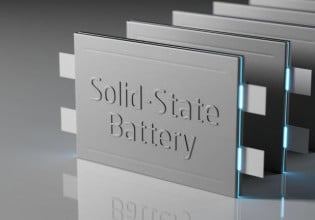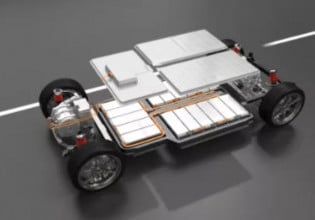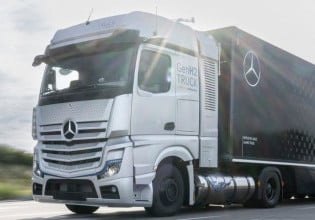Hyundai, LG Energy Solution to Open US Battery Plant
A joint venture between the two Korean companies will result in a new lithium-ion battery plant in Georgia to supply EVs in North America.
Another car company has announced a joint venture with a battery cell manufacturer to build a plant to build lithium-ion batteries for its U.S. electric vehicle (EV) production. Korea-based Hyundai Motor Group will work with LG Energy Solution (LGES) to build a $4.3 billion facility in Bryan County, near Savannah, Georgia, near where Hyundai Motor Group Metaplant America is currently being built.
Hyundai and LGES to build lithium-ion EV battery plant. Image used courtesy of Hyundai Motor Group
Battery production at the joint venture plant is expected to begin at the end of 2025, with an annual production capacity of 30 gigawatt-hours (GWh) to support the production of 300,000 electric vehicles.
LG Energy Solution
Korea-based LG Energy Solution is the second largest supplier of lithium-ion batteries to the auto industry. Customers like Ford, General Motors (GM), and Stellantis are in partnerships and joint ventures to supply their EV needs. The company is building three battery plants in a partnership with GM, including one in Warren, Ohio, which has already opened; one in Spring Hill, Tennessee, which will open in 2024; and the third in Lansing, Michigan, which is scheduled to open in early 2025. Including the new Hyundai joint venture, LGES has seven battery plants currently operating or being constructed in the U.S. In the Hyundai and LGES joint venture in Georgia, each company will hold a 50 percent stake in the cell production facility.
Hyundai
Hyundai will assemble the lithium-ion cells produced by the new plant into battery packs and then provide them to the company’s manufacturing facilities to produce Hyundai, Kia, and Genesis EV models. LGES supplies EV batteries for Hyundai Group models, including the Elantra Hybrid, Kona Electric, and IONIQ 6.
Hyundai’s new $5.5 billion EV manufacturing plant in Georgia will build new Hyundai and Genesis models.
Growing EVs
With the 2022 Inflation Reduction Act, plans for more than 20 new EV battery production facilities have been announced. The Act ties incentives to buy EVs in the U.S. to a manufacturer’s North American production of vehicles and their battery packs. To be eligible for a $7,500 tax incentive, vehicles must be made in the U.S., Canada, or Mexico. SUV EVs must be under $80,000, while the price cap is $55,000 for sedans, coupes, hatchbacks, and wagons to qualify for the incentives.
Incentives do help the EV market grow. In 2020, the total market for battery EVs in the U.S. was under 2 percent. In 2022, that number rose to around 6 percent. By 2030, U.S. battery electric sales will be 25 to 30 percent, and the sales will reach 45-50 percent by 2035 when companies like GM have said they will no longer sell gasoline models.
Domestic Sources
The wholesale change to the electrification of transportation will bring continuing challenges. In addition to fabricating lithium-ion battery cells in North America, local sourcing for the raw materials used in these cells. Car makers like Ford, GM, and Tesla are placing their bets by investing in domestic sources of lithium through established mining companies and new startups looking at new extraction methods for valuable battery materials. These investments will continue to grow as the U.S. finally moves toward an EV future.







